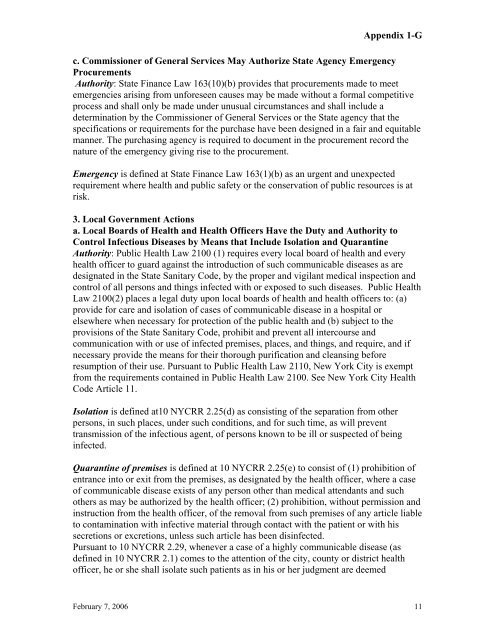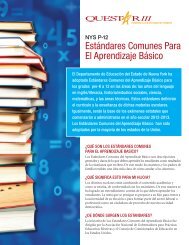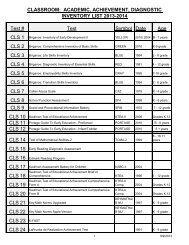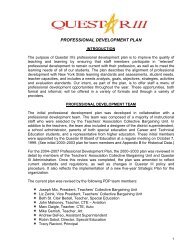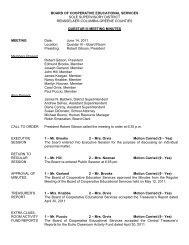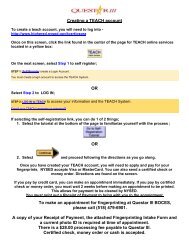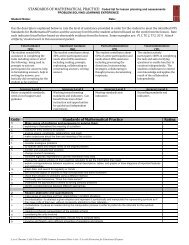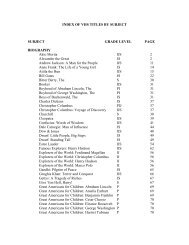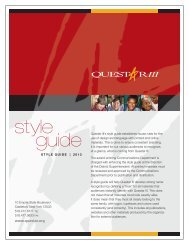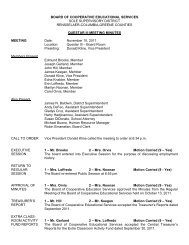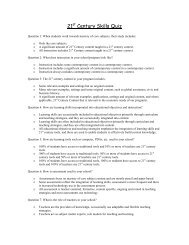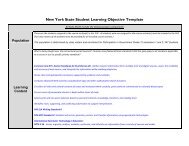- Page 1 and 2: February206 Pandemic Plan NewYorkSt
- Page 3 and 4: Introduction Pandemic influenza occ
- Page 5 and 6: example, at this time, it is realis
- Page 7 and 8: Acronyms (cont.) IND IHANS IRB ISHS
- Page 9 and 10: Section 1: Command and Control I. O
- Page 11 and 12: Section 1: Command and Control pers
- Page 13 and 14: February 7, 2006 Appendix 1-A
- Page 15 and 16: Appendix 1-B The Public Health Law
- Page 17 and 18: Appendix 1-B communicable diseases
- Page 19 and 20: Appendix 1-C Management Office or t
- Page 21 and 22: Appendix 1-E Suspension of Public M
- Page 23 and 24: Appendix 1-G A Guide to New York St
- Page 25 and 26: Appendix 1-G health commissioner. P
- Page 27 and 28: Appendix 1-G 8. State Institutions
- Page 29 and 30: Appendix 1-G b. Governor May Invoke
- Page 31: Appendix 1-G may direct, pursuant t
- Page 35 and 36: Appendix 1-G Designation of emergen
- Page 37 and 38: Appendix 1-G physician’s assistan
- Page 39 and 40: Appendix 1-H Summary of Public Offi
- Page 41 and 42: Section 2: Surveillance and Laborat
- Page 43 and 44: Section 2: Surveillance and Laborat
- Page 45 and 46: Section 2: Surveillance and Laborat
- Page 47 and 48: Section 2: Surveillance and Laborat
- Page 49 and 50: Section 2: Surveillance and Laborat
- Page 51 and 52: Section 2: Surveillance and Laborat
- Page 53 and 54: Section 2: Surveillance and Laborat
- Page 55 and 56: Section 2: Surveillance and Laborat
- Page 57 and 58: Section 2: Surveillance and Laborat
- Page 59 and 60: Section 2: Surveillance and Laborat
- Page 61 and 62: Section 2: Surveillance and Laborat
- Page 63 and 64: Appendix 2-A • Surveillance Crite
- Page 65 and 66: Appendix 2-A • In New York City,
- Page 67 and 68: NYSDOH Novel Influenza Case Report
- Page 69 and 70: NYSDOH Novel Influenza Case Report
- Page 71 and 72: NYSDOH Novel Influenza Case Report
- Page 73 and 74: Appendix 2-C to health care provide
- Page 75 and 76: Virus Detection History NYS Lab Num
- Page 77 and 78: Section 3: Healthcare Planning and
- Page 79 and 80: Section 3: Healthcare Planning and
- Page 81 and 82: Section 3: Healthcare Planning and
- Page 83 and 84:
Section 3: Healthcare Planning and
- Page 85 and 86:
Section 3: Healthcare Planning and
- Page 87 and 88:
Section 3: Healthcare Planning and
- Page 89 and 90:
Section 3: Healthcare Planning and
- Page 91 and 92:
Section 3: Healthcare Planning and
- Page 93 and 94:
Section 3: Healthcare Planning and
- Page 95 and 96:
Section 3: Healthcare Planning and
- Page 97 and 98:
Section 3: Healthcare Planning and
- Page 99 and 100:
Section 3: Healthcare Planning and
- Page 101 and 102:
Section 3: Healthcare Planning and
- Page 103 and 104:
Section 3: Healthcare Planning and
- Page 105 and 106:
Section 3: Healthcare Planning and
- Page 107 and 108:
Section 3: Healthcare Planning and
- Page 109 and 110:
Section 3: Healthcare Planning and
- Page 111 and 112:
Section 3: Healthcare Planning and
- Page 113 and 114:
Section 3: Healthcare Planning and
- Page 115 and 116:
Section 3: Healthcare Planning and
- Page 117 and 118:
Section 3: Healthcare Planning and
- Page 119 and 120:
Section 3: Healthcare Planning and
- Page 121 and 122:
Section 3: Healthcare Planning and
- Page 123 and 124:
Section 3: Healthcare Planning and
- Page 125 and 126:
Section 4: Infection Control I. Ove
- Page 127 and 128:
Section 4: Infection Control I. Ove
- Page 129 and 130:
Section 4: Infection Control A. Bas
- Page 131 and 132:
Section 4: Infection Control Drople
- Page 133 and 134:
Section 4: Infection Control • Pe
- Page 135 and 136:
Section 4: Infection Control o Noti
- Page 137 and 138:
Section 4: Infection Control E. Coh
- Page 139 and 140:
Section 4: Infection Control If wid
- Page 141 and 142:
Section 4: Infection Control • En
- Page 143 and 144:
Section 4: Infection Control should
- Page 145 and 146:
Section 4: Infection Control Policy
- Page 147 and 148:
Section 4: Infection Control o Staf
- Page 149 and 150:
Section 4: Infection Control • De
- Page 151 and 152:
Section 4: Infection Control • Pr
- Page 153 and 154:
Section 4: Infection Control The ma
- Page 155 and 156:
Section 4: Infection Control • Up
- Page 157 and 158:
Section 4: Infection Control Health
- Page 159 and 160:
Appendix 4-A Soiled linen and laund
- Page 161 and 162:
Appendix 4-B Respiratory Hygiene/Co
- Page 163 and 164:
Section 5: Clinical Guidelines I. O
- Page 165 and 166:
Section 5: Clinical Guidelines incu
- Page 167 and 168:
Section 5: Clinical Guidelines 1) N
- Page 169 and 170:
Section 5: Clinical Guidelines infe
- Page 171 and 172:
Section 5: Clinical Guidelines Alth
- Page 173 and 174:
Section 5: Clinical Guidelines Infe
- Page 175 and 176:
Section 5: Clinical Guidelines •
- Page 177 and 178:
Appendix 5-B Clinical Evaluation of
- Page 179 and 180:
Appendix 5-C Special Situations and
- Page 181 and 182:
Appendix 5-D handling soiled laundr
- Page 183 and 184:
DRAFT Appendix 5-E Footnotes to App
- Page 185 and 186:
Appendix 5-F February 7, 2006 1
- Page 187 and 188:
Appendix 5-F 7. Guidance on the eva
- Page 189 and 190:
Appendix 5-H Source: U.S. Departmen
- Page 191 and 192:
February 7, 2006 2 Appendix 5-I
- Page 193 and 194:
Appendix 5-J Clinical Presentation
- Page 195 and 196:
Appendix 5-J diabetes mellitus), re
- Page 197 and 198:
Appendix 5-J resistant S. aureus (M
- Page 199 and 200:
Appendix 5-K eight patients—all o
- Page 201 and 202:
Appendix 5-L Guidelines for Managem
- Page 203 and 204:
Appendix 5-L testing should be perf
- Page 205 and 206:
Appendix 5-L February 7, 2006 5
- Page 207 and 208:
Section 6: Vaccine Procurement, Dis
- Page 209 and 210:
Section 6: Vaccine Procurement, Dis
- Page 211 and 212:
Section 6: Vaccine Procurement, Dis
- Page 213 and 214:
Section 6: Vaccine Procurement, Dis
- Page 215 and 216:
Section 6: Vaccine Procurement, Dis
- Page 217 and 218:
Section 6: Vaccine Procurement, Dis
- Page 219 and 220:
Appendix 6-A Vaccine Priority Group
- Page 221 and 222:
Appendix 6-B Mass Clinic Planning O
- Page 223 and 224:
Appendix 6-C Vaccine and Antiviral
- Page 225 and 226:
Appendix 6-C 1. Request Phase The r
- Page 227 and 228:
Appendix 6-C 3. Receipt and Sign-of
- Page 229 and 230:
Appendix 6-C • Work with local he
- Page 231 and 232:
Section 7: Antiviral Medication Pro
- Page 233 and 234:
Section 7: Antiviral Medication Pro
- Page 235 and 236:
Section 7: Antiviral Medication Pro
- Page 237 and 238:
Section 7: Antiviral Medication Pro
- Page 239 and 240:
Section 7: Antiviral Medication Pro
- Page 241 and 242:
Section 7: Antiviral Medication Pro
- Page 243 and 244:
Section 7: Antiviral Medication Pro
- Page 245 and 246:
Section 7: Antiviral Medication Pro
- Page 247 and 248:
Section 7: Antiviral Medication Pro
- Page 249 and 250:
Appendix 7-A Characteristics of Ant
- Page 251 and 252:
Appendix 7-B a The drug package ins
- Page 253 and 254:
Appendix 7-C 7 HCWs in emergency de
- Page 255 and 256:
Section 8: Travel-Related Disease C
- Page 257 and 258:
Section 8: Travel-Related Disease C
- Page 259 and 260:
Section 8: Travel-Related Disease C
- Page 261 and 262:
Section 8: Travel-Related Disease C
- Page 263 and 264:
Section 8: Travel-Related Disease C
- Page 265 and 266:
Section 8: Travel-Related Disease C
- Page 267 and 268:
Appendix 8-A Home or Community-Base
- Page 269 and 270:
Appendix 8-B Contact Identification
- Page 271 and 272:
Appendix 8-B • Determine the time
- Page 273 and 274:
Appendix 8-C Administrative Data: S
- Page 275 and 276:
Appendix 8-D CONTACT DAILY TEMPERAT
- Page 277 and 278:
Appendix 8-F Definitions: Intervent
- Page 279 and 280:
Appendix 8-F facility. No specific
- Page 281 and 282:
Appendix 8-F • Resources Required
- Page 283 and 284:
Appendix 8-G Business Pandemic Infl
- Page 285 and 286:
Appendix 8-G 4. Allocate resources
- Page 287 and 288:
Appendix 8-H CDC guidelines suggest
- Page 289 and 290:
Appendix 8-H If I am not masked I
- Page 291 and 292:
Appendix 8-H NYSDOH Model Influenza
- Page 293 and 294:
Appendix 8-H I understand that if
- Page 295 and 296:
Section 9: Communications I. Overvi
- Page 297 and 298:
Section 9: Communications and commu
- Page 299 and 300:
Section 9: Communications web pages
- Page 301 and 302:
Section 9: Communications Local Hea
- Page 303 and 304:
Section 9: Communications • A JIC
- Page 305 and 306:
Section 9: Communications backup to
- Page 307 and 308:
Section 9: Communications • In th
- Page 309 and 310:
Appendix 9-A Public Health Risk Com
- Page 311 and 312:
Appendix 9-C New York State Departm
- Page 313 and 314:
Appendix 9-C PRE-EVENT MESSAGE MAP:
- Page 315 and 316:
Appendix 9-C PROTECTIVE MESSAGE MAP
- Page 317 and 318:
Appendix 9-C TREATMENT MESSAGE MAP:
- Page 319 and 320:
Appendix 9-C BUSINESS CONTINUITY PR
- Page 321 and 322:
Section 10: Training and Education
- Page 323 and 324:
Section 10: Training and Education
- Page 325 and 326:
Section 10: Training and Education
- Page 327 and 328:
Appendix 10-A NYSDOH STAFF PRIVATE
- Page 329 and 330:
Appendix 10-A NYSDOH STAFF PRIVATE
- Page 331 and 332:
Appendix 10-A NYSDOH STAFF PRIVATE
- Page 333 and 334:
Appendix 10-A NYSDOH STAFF PRIVATE
- Page 335 and 336:
FACILITY- BASED RNs FACILITY- BASED
- Page 337 and 338:
FACILITY- BASED RNs FACILITY- BASED
- Page 339 and 340:
FACILITY- BASED RNs FACILITY- BASED
- Page 341 and 342:
Section 11: Workforce Support I. Ov
- Page 343 and 344:
Section 11: Workforce Support Pande
- Page 345 and 346:
Section 12: Highly Pathogenic H5N1
- Page 347 and 348:
Section 12: H5N1 in Non-Human Anima
- Page 349 and 350:
Section 12: H5N1 in Non-Human Anima
- Page 351 and 352:
Section 12: H5N1 in Non-Human Anima
- Page 353 and 354:
Section 12: H5N1 in Non-Human Anima
- Page 355 and 356:
Section 13: Public Health Preparedn
- Page 357 and 358:
Section 13: Public Health Preparedn
- Page 359 and 360:
Section 13: Public Health Preparedn
- Page 361 and 362:
Section 13: Public Health Preparedn
- Page 363 and 364:
Section 13: Public Health Preparedn
- Page 365 and 366:
Section 13: Public Health Preparedn
- Page 367 and 368:
Section 13: Public Health Preparedn
- Page 369 and 370:
Section 13: Public Health Preparedn
- Page 371 and 372:
Section 13: Public Health Preparedn
- Page 373 and 374:
Section 13: Public Health Preparedn
- Page 375 and 376:
Section 13: Public Health Preparedn
- Page 377 and 378:
Section 13: Public Health Preparedn
- Page 379 and 380:
Section 13: Public Health Preparedn
- Page 381 and 382:
Section 13: Public Health Preparedn
- Page 383 and 384:
Section 13: Public Health Preparedn
- Page 385 and 386:
Section 13: Public Health Preparedn
- Page 387 and 388:
Section 13: Public Health Preparedn
- Page 389 and 390:
Appendix 13-A NYSDOH Roles Notified
- Page 391 and 392:
Appendix 13-B Notifications sent by
- Page 393 and 394:
Appendix 13-B HAN posting is used a
- Page 395 and 396:
Appendix 13-B notification system t
- Page 397 and 398:
Appendix 13-C Overview of the Healt
- Page 399 and 400:
Appendix 13-C • Ongoing surveilla
- Page 401 and 402:
Table 1. Summary of HERDS Use To da
- Page 403 and 404:
Appendix 13-D Commerce Access and A
- Page 405 and 406:
Appendix 13-D Table 3. Organization


